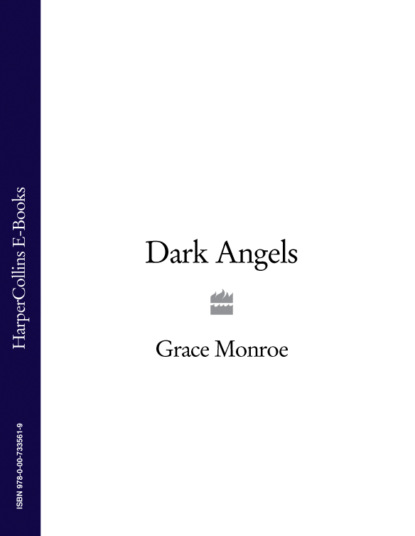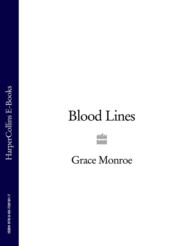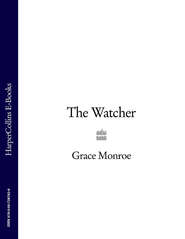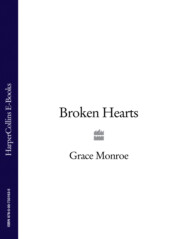По всем вопросам обращайтесь на: info@litportal.ru
(©) 2003-2024.
✖
Dark Angels
Автор
Год написания книги
2018
Настройки чтения
Размер шрифта
Высота строк
Поля
The tide turned somewhat two years ago. Rather than scumbag clients (whether well-to-do scumbags or not), it was one of our own who needed help. Senior partner Roddie Buchanan’s picture was splashed all over the tabloids. There was some justice in this. The man’s mantra had always been, ‘There’s no such thing as bad publicity.’ Somehow he seemed to question the validity of that stance when pictured on the front page of The Sun naked in the dungeon of an S&M whorehouse.
I kept Roddie Buchanan’s file at home–away from the prying eyes and empty wallets of summer work experience students who might think to supplement their grants by rehashing old news, or selling pics to their pals. When I opened the folder, loose clippings fell to the floor, scattering around my feet.
A hidden camera had snapped a masked Roderick Buchanan Esquire, trussed up like a Christmas turkey. And here was where my past met my present–Kailash Coutts, clad in black leather basque and fishnet stockings stood over him, a large syringe in her hand. Apparently, Roddie had paid her to inject his testicles with water until they were the size of footballs. And they say men don’t have any imagination.
On the day The Sun led with the story, Roddie didn’t deign to come into the office. It didn’t matter. He was irrelevant. I was asked–no, told–by my colleagues to represent him. It was up to me to determine what line such a representation would take. I didn’t need anything real. I just needed to throw Roddie and his wife a bone, so to speak.
I sued The Sun for three million pounds thanks to a technical error in the wording of the story. In Scotland, if you want to avoid being sued for defamation, then every word printed has to be correct. The article stated (actually, the one-handed hack job leered under the headline: NO BRIEFS, MISS WHIPLASH!!!) that Roddie Buchanan (‘posh Edinburgh legal bigwig’) paid Kailash Coutts (‘infamous pervy S&M Queen’) to inject both of his testicles. I got Kailash to sign an affidavit, in front of an independent Notary Public, to the effect that he only wanted one bollock dealt with.
The paper settled, for a derisory sum, but they gave us the all-important apology (notwithstanding that it was printed on page nine). Roddie could now say to everyone that he’d been defamed and his wife could broadcast her husband’s absolute innocence in every drawing room in the city. After all, if the nasty tabloid could lie about the number of testicles involved, it stands to reason that the whole thing could be made up–doesn’t it?
In the immediate aftermath of the case, appearing in court was awkward. I was initially greeted with messages for Roddie. The whole business kept every would-be stand-up comedian in a wig and gown going for months, generally along the lines that Roddie had wasted his money given that half of the Edinburgh legal establishment would have been willing to kick his bollocks for free anyway.
Turns out that Buchanan was right in one way–there was no such thing as bad publicity. My career–and my fees–rocketed. A grudging respect from him would have been nice though, given that I was the one who had cleared up his scandal–somehow, he just didn’t seem to be able to show that little bit of gratitude. I didn’t take it personally; it wasn’t just me he didn’t like: he may have paid other women a fortune to whack him off with a whip or inflate his bollocks to within an inch of their life, but he wasn’t that fond of the fairer sex. I wasn’t too surprised–I had met Eilidh Buchanan on a number of occasions.
Now I was going to have to ask Roddie’s permission to take on this case. Kailash Coutts must have been behind The Sun getting the pictures of Roddie’s hobby in the first place. She certainly knew that we had asked her to be complicit in getting an apology from the paper on a technicality that didn’t matter one bit–in fact, we were all sure she must have had a dozen photograph albums made up of much tastier pics than the paper ever published. There was a clear conflict of interest, and I thought that I should withdraw from acting. My opinion was irrelevant until it had been past Roddie Buchanan.
It was a lovely prospect. I had to face calling him at home to inform him that his favourite prostitute was in police custody and that she wanted me to represent her. That was bound to go down well with his wife.
My mouth was dry and I felt embarrassingly nervous as I rang his home number. I could have kicked myself the moment the receiver was picked up and I recognised Eilidh Buchanan’s voice. I remembered Roddie was in Switzerland, putting a deal to bed.
Details were unnecessary. No matter what, I had to tell her that Kailash Coutts was in custody and I did not want to represent her.
She listened as I spluttered out the sparse information.
‘You will contain this,’ she said condescendingly. ‘I will not tolerate the firm splashed all over the gutter press again.’
Edinburgh lawyers’ wives–they’re the ones you don’t mess with. They’re the ones so warm and cuddly that their men pay good money to get whores to dress them up in rubber fetish gear and inject their genitals for fun.
‘I can’t stop it. The trial will be a matter of public record. Open to the tabloids. I don’t doubt that they’ll…erm, re-open old wounds, but there’s nothing I can do about it.’
‘Well, now…’ replied Eilidh Buchanan. ‘You’ve just laid something on the table, Brodie. I think we need to examine your attitude closely. If you can’t stop what needs to be stopped, we’ll need to find someone who will.’
‘Is that a threat?’ I asked.
‘I’m just stating a fact. For the record.’
My pet hate is pointless conversation, and nothing could be gained by continuing this tête-à-tête, so I said goodbye and within seconds had grabbed my scuffed black biker’s helmet, worn from years of use, and left for St Leonard’s Police Station.
The night air was damp and earthy; a soft haze covered the slate rooftops. There were no lights in the windows of my neighbours’ houses. I threw myself onto the kick-start, praying the pistons were on their firing stroke, otherwise I would be thrown off the bike. Not that it was just ‘a’ bike; it was my pride and joy–a 1970 Ironhead Fat Boy Harley, and it thankfully roared into life, the huge 1200v twin engine with straight through pipes woke half the neighbourhood in the process.
I looked up. I wasn’t too bothered about waking neighbours, but there was one person I cared about and I cared about the fact that he never got enough sleep (not that I would necessarily ever tell him). I didn’t want to be the one responsible for waking him if he had finally dropped off. The bedside light was still on in the first floor bedroom in our house. Fishy must still have been awake anyway. This must be another night when he would be plagued by his worries, where sleep would evade him, and he would ponder over his work until morning. This would be one more day, when I wasn’t there to listen to him. Fishy and I went back a long way–we had met on our first day in the Law Faculty at university and he was the only student to win more prizes than I did.
When I first bought my flat, I adored the isolation. I revelled in the space and light, and particularly in the fact that I could have anyone to stay over without withering looks or comments from others. Of course, by ‘anyone’, I mean men–my track record meant that few of them ever stayed more than one night. My romantic dreams of finding someone a bit more permanent were as much coloured by my habit of pushing away most men who tried to get close as by the fact that they were generally losers anyway. It wasn’t that I didn’t get on with men–far from it; some of my closest friends were afflicted with excess testosterone, and I wasn’t averse to non-committal relationships based purely on a nice backside and a lie-in–but as soon as any man started to get, as my mum would have put it, ‘serious’, the shutters came down and the metaphorical locks got changed.
By the time I realised this, I also realised that I was spending a hell of a lot of time alone anyway. I decided that a flatmate was in order and texted lots of old pals from university and around–Richard Sturgeon and I had got on well when we were students together, and I was delighted when he got back to me and said he was working in Edinburgh and needed somewhere to stay.
I had hardly seen him recently. We both shared a house, and, when we had time, shared laughs too, but those times were rare just now. Not only were we both working ridiculous hours, but the bone of contention which was always between us seemed to be even more problematical than usual. I wasn’t fighting Fishy–I was fighting DC Richard Sturgeon. I had always thought Fishy had thrown his talent away by joining the police force. I knew how good a lawyer I was, and the thought that the one person who I thought was better than me had actually chosen a different path was unfathomable. His job appeared to be just as stressful as mine, judging by his insomnia and weight-loss, but I didn’t have much sympathy. I just couldn’t understand why he was taking this career path–I wasn’t just being stubborn; I genuinely thought he would be better out of the police force, especially given that he seemed to be miserable all the time anyway. Still, as every women’s magazine on earth would tell me, I needed to be there for him as a friend rather than a constant critic.
In truth, Fishy was just another one to add to my list. Another one hacked off at me, another one to push out of my mind as I headed off to the station. Sergeant Munro would be there having a fit at my lack of promptness, and Eilidh Buchanan was already gunning for me.
Roll on Kailash Coutts–could it get any worse than a tart who already disliked and had tried to bankrupt me, now demanding that I represent her in a murder case?
THREE (#ua0e78b3d-2497-537b-b13f-f75fe1836b7a)
There was no traffic–quite right too, normal people should be in bed at this time of night/morning. The cobbles were greasy and wet though, and I had to keep my speed down to stop the bike from skidding on the road.
Driving conditions were treacherous. I had no time to enjoy the beautiful buildings as me and Awesome climbed Dundas Street in the heart of the New Town.
Stuck at the traffic lights at the bottom of Hanover Street, the Sphinx sitting atop of the National Gallery stared down ominously at me. If she was foretelling something, I couldn’t read her warnings, but I knew that the day would bring a stark new world for someone. Out there, somewhere, a wife was waking up to the news that her husband was dead. Does he have children, I wondered? If so, how will they feel? They will be expected to walk upright, go to work or school, and keep a roof over their heads. Crime rips people apart and I see it every day, it’s what pays my mortgage and it’s what keeps me awake at night. It surprises me that more people don’t seek revenge.
The lights changed, and my musings continued. I always think on my bike, solve problems, but Kailash Coutts eluded me. What could this man have done that was so heinous it warranted his murder? Kailash was the self-appointed dissolute ruler of the city. Her wealth, which was considerable, was built on men’s depravity, but to acquire her fortune, she must have seen everything (and been well paid for it). What could have been so new to her, or so terrible, that she felt she had to deal with it–permanently?
I wanted to know who this man was who had been dismissed by her. He was probably white, with the usual number of fingers and toes; he was doubtless older than my twenty-eight years. He would be ordinary by most standards, and I’d imagine his wife and work colleagues would have no idea of his secret life. Or would they? One thing my work has taught me: you can never tell someone else’s vice, unless you have that particular sin in you. It was a truth I often saw in my work. Edinburgh is the city of split personalities, its establishment was the inspiration for the original schizo-boys, Dr Jekyll and Mr Hyde, and there were plenty of men out there who still led pretty effective double-lives of suburban normality married to episodes in the likes of Kailash Coutts’ dungeon. There wasn’t much I could say in favour of Kailash herself, but at least what you saw with her was what you got, or in any event, it was after the Roddie Buchanan scandal.
Edinburgh Castle sat, impenetrable on its rock, shrouded in mist, as I turned down the Royal Mile, past Deacon Brodie’s pub. The sign on the tavern wall told the true tale of his downfall and continued the myth of two-faced Edinburgh denizens: ‘worthy by day, a gentleman burglar by night, hung on the very gallows he invented’. As a child, I had stood with my mother in front of the painting of the hanging Deacon, relentlessly questioning her: was he my namesake? Was I named after Deacon Brodie? To my disappointment, she always blasted my romanticism out of the water, repeatedly telling me that I was named after the old tea factory that our thirteenth-storey flat overlooked. I still clung to the hope that I had more in common with a licentious, gambling, thieving criminal hanged for his sins than a packet of tea.
On the opposite corner to the pub that still drew me in, outside the High Court, sat a statue of Hume, the father of Scottish law. Draped in a sheet, I felt the artist could have used some aesthetic licence–the sagging pectorals of the carved man made me swerve every time I drove past, although it appeared that only the pigeons and I took any notice of him.
I increased my speed and Parliament House sped by. The route to St Leonard’s was a trail of the crime history of Edinburgh, and the narrow closes where body snatchers and serial killers Burke and Hare plied their trade to keep university anatomists busy flew past. Now a city of repute, the Capital could not easily erase its disreputable past. The new Scottish Parliament building at the foot of the Mile did nothing to expunge its notoriety–a series of architectural and financial disasters had led us to a point where the whole business had made Edinburgh a laughing-stock and bought only a few dodgy constructs with what looked like bingo-winner stone cladding.
On every corner in Edinburgh, I see an imprint of crime overlaid onto the landscape. I looked up at Arthur’s Seat, the Salisbury Crags looming ominously in the early morning skyline, and remembered the German bride thrown over its cruel edges to her death. Not too heartbreaking for her new husband as he collected the insurance money. Everywhere was the same, every place had a story of cruelty or jealousy or lust or evil. St Leonard’s Police Station nestles at the foot of Arthur’s Seat, in the heart of Edinburgh’s Old Town, and is not averse to putting a few new nasty stories into the history of the city. Ordinarily, the streets around the station are, by and large, deserted. But as I approached it in the early hours, it looked like a three-ringed circus. This spelled trouble.
Reporters with notepads and tape recorders, like flies on a corpse. They were everywhere. A television crew was on the street, a man in a sodden trench coat talking into a microphone, his face serious as a grinding camera recorded him for the morning news.
They were all waiting impatiently, for my arrival. I could have kicked myself for not stopping to put some make-up on, but I genuinely hadn’t realised there would be this much interest in Kailash so early on in the case. Someone at St Leonard’s must have made a tidy backhander alerting the hacks to this one. Reluctantly, I parked and made my way towards them–I didn’t want to look dazed and tired in a million homes tomorrow, but without the benefit of a full-blown Jo Malone overnight kit and emergency make-up box in my backpack, I’d have to accept it.
Jack Deans was the first one to notice me as I pulled off my helmet. I always feel obliged to say, ‘Jack Deans, prize-winning investigative journalist’ when I introduce him to anyone. I preferred not to recognise that I still got a very worrying flutter every time the fucked-up waster looked at me. Christ knows why. He was a decade past his best–and that would have been if he had spent his best years sober. A former international rugby player, he towered above me. His eyes slowly lowered to meet mine. They were deep, deep blue and he managed to draw me into his stare–or maybe he was sleep-deprived too and couldn’t focus very well.
Deans was definitely handsome, in a worn out sort of way. In his younger years, he covered war zones and corrupt dictators; in his latter years he had lost himself in a morass of laughable conspiracy theories and discovered that he couldn’t quite find enough clarity at the bottom of a bottle of Laphroaig. He claimed he wasn’t drinking these days, but I’d seen him slip enough times to know that he didn’t have a permanent pass for the wagon. I had to shake myself out of my very private but still highly mortifying crush on Deans–he’d never let me live it down if he ever found out. His grey black hair flopped over his right eye as he approached me and I drew myself to my full height (five foot four plus the three inches I got from the rather snazzy Cuban heels on my hand-made biker boots).
‘Brodie!’ shouted Deans, his voice shaped by a past affair with whisky and cigarettes. (‘No! No! No!’ I told myself. ‘It’s shaped by booze and fags and cancer and hardened arteries and all sorts of manky stuff. He is not not not sexy.’)
‘I take it you’re here for Kailash?’
The woman had turned into Madonna–she needed no surname. I was tired and I did actually resent his familiarity, even if I did, on a dull night, often want to get into his no-doubt-vile-but-very-well-filled pants.
‘No comment,’ I said tersely.
‘I’ve been standing here, in this pissing rain, for almost two hours–give me something. Please? Please, Brodie? Pretty please?’
The rain had plastered his hair to the side of his grizzled cheek. Although it was raining, the night air was still–after about thirty seconds with the man, as usual, my bizarre crush had worn off and I just wanted to slap him for assuming he had any right to information from me. I was also not so smitten that I didn’t wonder how he could have been there for nearly two hours unless someone had called him pretty bloody sharpish.
I ignored Jack Deans and made my way to the front door of the station and he followed me. His past glories were still sufficiently bright in the eyes of the other journalists present for them to hang back deferentially.
The man was tracking me. I felt his eyes bore into me but continued to ignore him, until he grabbed my arm. Instinctively, I smashed my helmet into his knee: to his acolytes (and the CCTV outside the station door), it looked like a clumsy accident, but we knew differently. He crashed to the ground, like a newly cut Christmas tree.
Magic moment officially broken.








